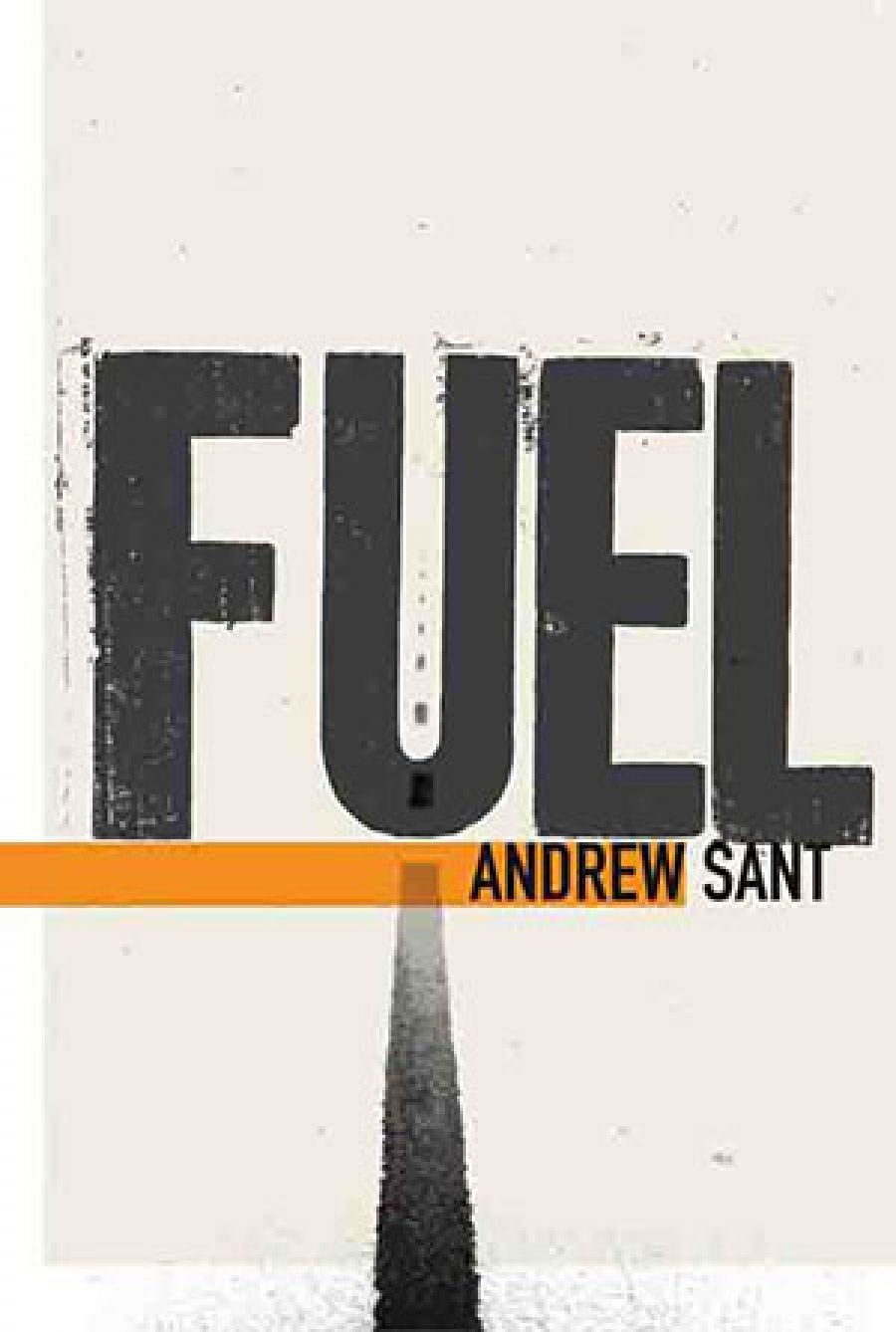
- Free Article: No
- Contents Category: Poetry
- Review Article: Yes
- Article Title: A full tank
- Online Only: No
- Custom Highlight Text:
Fuel is Andrew Sant’s eleventh poetry collection. His previous volume was Speed & Other Liberties (2008), which included some of the new poems from Tremors: New & Selected Poems (2004), along with additional work. The epigraph to Speed & Other Liberties is Marc Bloch’s statement that ‘Contemporary civilisation differs in one particularly distinctive feature from those which preceded it: speed’. So, the titles of Sant’s last two volumes imply movement, power, freedom and forward thrust. Certainly, some of the poems in Fuel move at least as fluidly as the often fast-paced poems in Speed, impelled by a rapid accumulation of ideas and associations.
- Book 1 Title: Fuel
- Book 1 Biblio: Black Pepper, $24.95 pb, 136 pp
- Book 1 Cover Small (400 x 600):

The rhythmic life of Sant’s poetry is various and involving. There are extended poetic sentences; a considerable verbal inventiveness; a quicksilver way with ideas; and a purposeful deployment of devices such as internal rhyme and enjambment. But the poems are never helter-skelter. Sant drives them onwards with care, organising and containing their energy even when he is at full throttle.
Sant’s poetic voice in Fuel emphasises momentum in a way that extends the considered measures of the poetry of his first four or five volumes, the pleasures of which were closely tied to its judicious intricacy and carefully observed image-making. But although his mode is more energised (though no less intricate) than in the past, he retains his interest in history, in articulating his sense of being-in-the-world and in questioning the adequacy of language to register complex experience. He writes: ‘Fuel exists, carboniferous heat, / and harnessed water that drives townships, / lit up, into the night; but there’s no energy / as inexhaustible as that seen / in a lover’s eyes’ (‘In the Land Called Desire’). This volume has many such confident-speaking poems that link personal concerns with larger, even global, issues. While some are deliberately lightweight, even jokey, they are all informed by the poet’s attentiveness to the world and by his probing, occasionally mordant, sense of humour.
For Sant, issues relating to history, the environment, modernity and the future have always seemed personal. From his first volume onwards, his poetic personae have been close to the world’s concerns, travelling through time and place with a restless interest in what has happened – today and yesterday, in preceding centuries, and even throughout geological time. For instance, in Tremors, the poem ‘Geologist in a Cave’, from the early 1980s, speaks of the ‘Countless strata beneath / the veneer of place’.
It is no surprise that Fuel begins with a poem (‘Revisiting Cliffs’) in which the poet ‘whistle[s] out the boy’ in him to climb a ‘wind-sculpted cliff face’, ‘to get at the fossils’. The present, the personal past and the ancient history of the earth intersect as this work considers the vast geological changes that have occurred over the millennia, the numerous extinctions and the continuance of the life cycle, including gulls feeding on the fruits of the sea. Sant finishes with a characteristically ruminative and encapsulating statement that functions to open up his reflections: ‘What a strange wonder, / on this latest day of creation, / to be human, scramble up / a cliff-face to extract, / with a pick, a bunch of old stones // and look into it deeply for orientation.’
There are numerous poems in this volume about insects and animals. ‘Little Forest Bats in the Foothills’ (‘Their forest / is continuous dark. Spiv-eared, / they listen; wings shrivelled’) emphasises the disjuncture between human research into bats and their natural ‘mapping ultrasound’. ‘The Household Moth’ and the fine ‘Dedication to a Potter Wasp’ explore the poet’s strong sense of being connected to, if separate from, other living things. In the latter poem, Sant’s thoughtful anatomy of the wasp’s activities remind one that a significant part of the poet’s art lies in truly registering what he witnesses.
The book’s final poem, ‘Ode To Water’, invokes the work of other writers – including Pindar’s famous ode, ‘Olympian I’, beginning ‘Best blessing of all is water’ – but this poem is pure Sant in the way that it moves from a parody of high rhetorical modes (‘Even the elliptical drip / on the tap, I praise’), to the ironic observation that human fashions extend to bottled water (‘in the shops / – mountain landscapes on the labels – proves / that it’s precious’), to a playful conceptual riff about ‘continuities no spanner / will interrupt when the tap’s fixed’. This poem’s multifaceted conceit turns on the fundamental importance of water: how we take it for granted; how the tap continues to drip; how water can clean, save and enthral.
This is a satisfying, shifting and thoughtful volume, charged with ideas, energy and a strong engagement with the world – fuel for the mind.


Comments powered by CComment